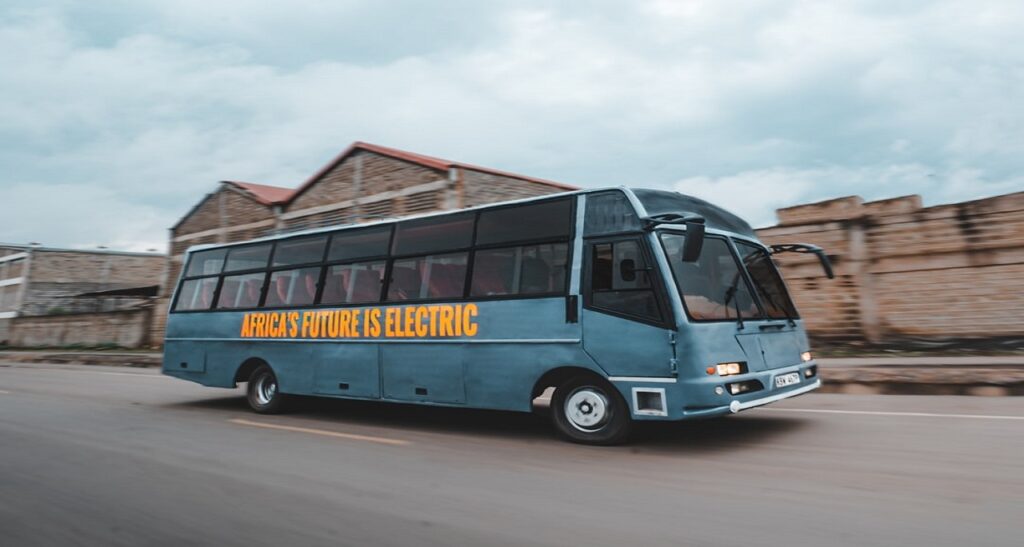Opibus' big plans
The Swedish-Kenyan startup Opibus has been steadfast in setting trends for the electric vehicle (EV) industry in the Kenyan market. As EVs continue to revolutionize the motor transport industry, every vehicle maker wants a piece of the market, and Opibus is not left behind. 10 years ago, many vehicle manufacturers were skeptical of the huge potential of electric vehicles. No wonder a big player like Elon Musk’s Tesla caught them off guard and went on to become the most valuable carmaker in the world.
Tesla Inc. indeed set the ball rolling for the EV industry leading to new entrants like Opibus that launched in 2017 by Filip Gardler, Filip Lövström, and Mikael Gånge. Opibus specializes in all-electric vehicles like buses, light trucks, and motorcycles. The first electric bus by Opibus started operations this month, becoming the company’s first mass transit vehicle to enter into the public transportation industry. It was no surprise as the company had announced the rollout in 2021 after raising $7.5 million in pre-Series A phase.

Image Credits: Opibus
The launch is merely a pilot program to test the efficacy of the bus while preparing for the commercial launch of the EV buses later in 2022. Notably, Opibus has a plan in place to roll out these buses across Africa in 2023.
Since its launch in 2017, the firm has been making all-electric conversion kits to convert gasoline and diesel-powered buses to EVs. Well, they are doing a great job, after all, there are many benefits associated with EVs. The main one is reduced carbon emissions. Unlike combustion-engine vehicles that emit huge volumes of carbon gases into the atmosphere, EVs do not emit these gases. Ergo, they help in reducing these emissions. Also, EVs reduce the cost of transportation as the cost of electric power is significantly lower than the cost of fossil fuels.
So far Opibus has converted 170 combustion-engine buses to electric vehicles for companies in various industries including mining and tourism. This lives up to the firm’s vision of making electric transport more accessible to a broader market by making the technology more cost-efficient and simplifying deployment.

Currently, Opibus is steadily leaning towards building EVs and infrastructure of public charging stations and service centers. You will get a brand new electric bus at $100,000 and pay $60,000 for the conversion of a gasoline bus to an electric one.
Albin Wilson, the company’s chief strategy and marketing officer said that the company will introduce 10 commercial buses into the Nairobi transportation market to test whether the vehicles meet expected usage demands. Then the feedback collected from the pilot program will provide insights on necessary changes and improvements. The company will then liaise with partners to quickly scale out the rollout of commercial EV buses.
Opibus boasts of a competitive advantage as its vehicles are relatively affordable since they are designed locally. Another benefit of local production is that vehicles can be tailored to meet customer needs.
Opibus insists on producing EV buses that are durable, affordable, and accessible in the region. Wilson said their buses are built with scalability in mind to take advantage of both local and global manufacturers. The scalability allows the company to easily implement the design in other African countries.
The company hopes to get into partnerships that will aid in the production, distribution, and adoption of EV buses across Africa. A major partnership that the company announced in December 2021 was with Uber that will see the deployment of electric motorcycles across Africa. Uber intends to use these motorcycles to ferry passengers and deliver goods to customers.
The Kenyan EV industry is taking shape and has attracted other EV makers. BasiGo was the latest company to join the industry in November 2021. BasiGo assembles buses locally with parts imported from China’s EV company BYD Automotive. Recently, BasiGo brought in two EV mass transport buses for test purposes. BasiGo’s EV buses come in two capacities, that is, a 25-seater and 36-seater.
While Opibus EV buses have a large capacity – 51-seat capacity, BasiGo buses have a higher range of up to 250 kilometers while Opibus has a maximum range of 120 kilometers.
Potential Challenges
EVs beat fossil-fuel-powered vehicles in many areas. Notwithstanding, this doesn’t mean the adoption of EVs is going to be a walk in the park. One of the major challenges that Opibus and other electric-makers may face is inadequate electric power to charge their vehicles. Kenya and many other African nations do not produce enough electric power to adequately power vehicles at a larger scale.
The startup may be forced to rely on its power source to provide power to its customers – this may be pretty expensive. Kenya mainly relies on hydroelectric energy to power its economy. While other renewable sources of energy have not been widely adopted, the EV revolution may be what the country needs to invest more in energy.
It is true to say that, among other factors, the lack of enough electric power available in many African countries is a major reason why EV giants like Tesla Inc. have been not entered the African car market.
Another potential challenge is the issue of infrastructure. The position of charging stations is majorly influenced by the national electricity grid. Hence, the company may need to compromise on how they situate their stations.
I believe electric vehicles will soon overtake their combustion-engine counterparts. Whether the adoption is triggered by the increased demand or the sheer fact that global warming has become a problem, the EV revolution is inevitable.

